Choosing safe food in the context of African swine fever outbreaks.
In the context of African swine fever not yet being completely controlled, raising awareness among each citizen and becoming a wise consumer when choosing and using food, especially pork, is crucial not only for their own health but also for supporting effective disease prevention and control measures.
Prolonged development
According to data from the Department of Animal Husbandry and Veterinary Medicine of Nghe An province, as of mid-September 2025, the province still had approximately 50 outbreaks of African swine fever, mainly concentrated in the communes of Yen Xuan, Dai Dong, Kim Bang, Anh Son, Anh Son Dong, etc.
From July 1st to September 15th, the entire province had to destroy approximately 2,000 tons of diseased pigs. This represents a significant loss for livestock farmers and puts considerable pressure on authorities in preventing the widespread spread of the disease.

Although the province has administered 5,000 doses of vaccine and distributed 18,000 liters of disinfectant to localities with high outbreaks, these figures are still modest compared to the size of the herd and the rapid spread of the disease.
There are many reasons why African swine fever persists and is difficult to eradicate completely. One of the current difficulties is the shortage of veterinary staff at the grassroots level; many communes lack sufficient personnel to handle sample collection, transportation, disposal, and monitoring at control checkpoints. In addition, limited contingency funds often lead to reactive and piecemeal disease control efforts.
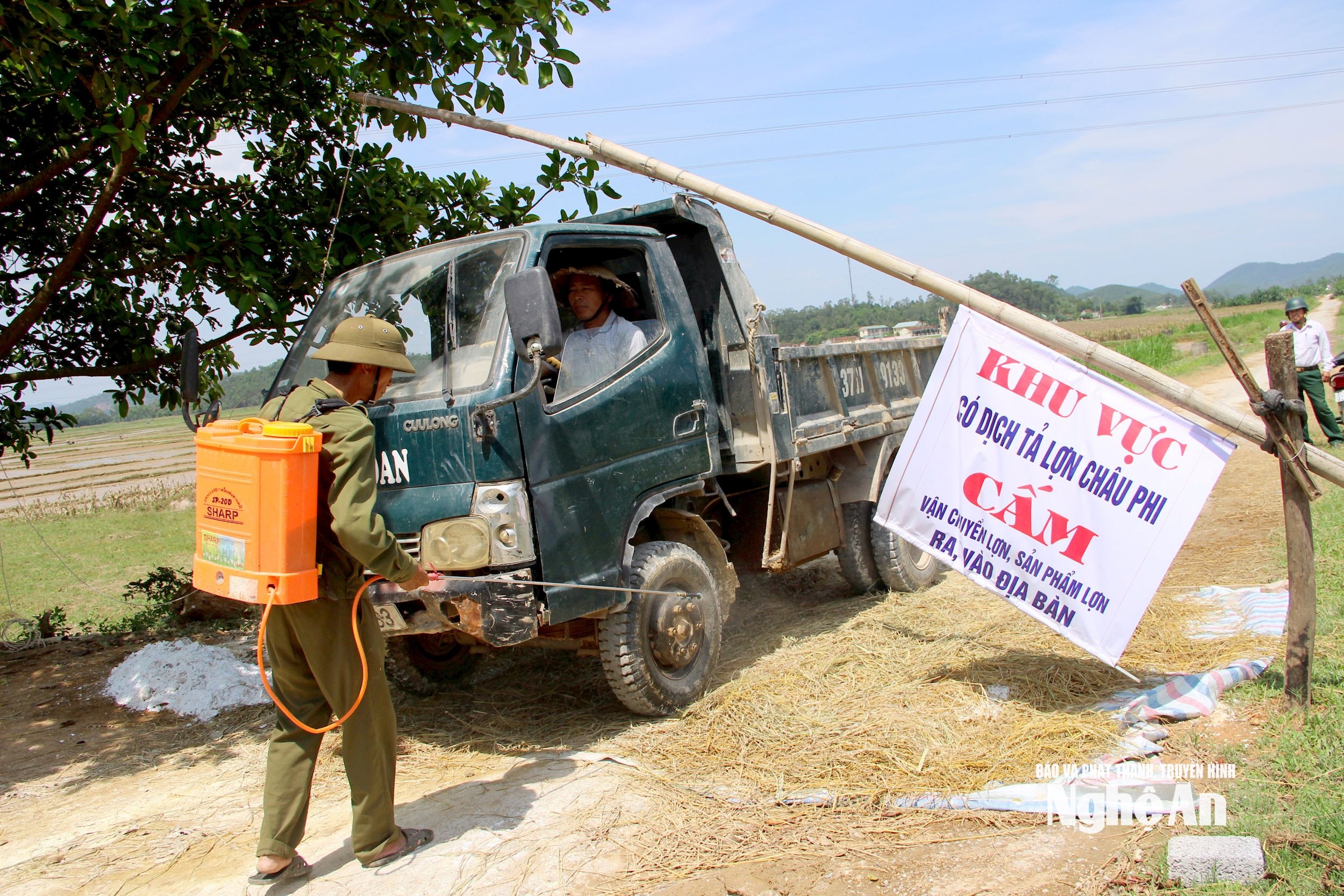
Furthermore, the low awareness of some people has also led to repeated outbreaks of the disease. Mr. Le The Hieu, Vice Chairman of the Minh Chau Commune People's Committee, said: "In recent times, the locality has tightened measures to prevent and control African swine fever, however, the practice of discarding pig carcasses into the environment, into canals and ditches, or failing to report sick or dead pigs still occurs, posing a risk of recurrence and spread of the disease. Many people are still complacent and indifferent to this dangerous disease."
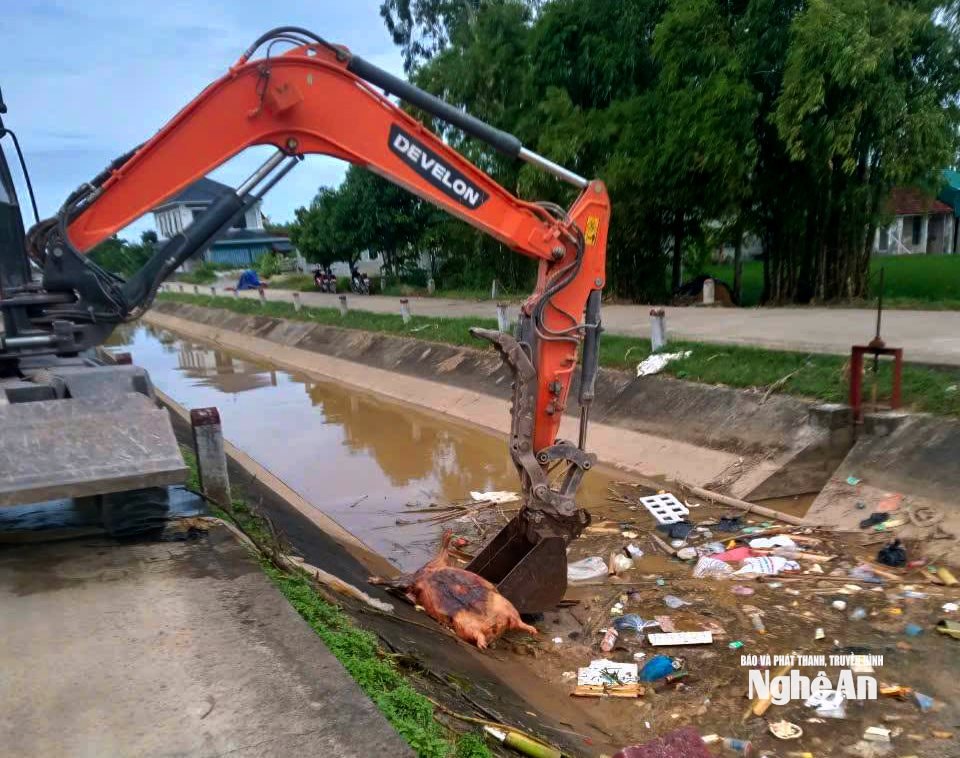
According to the Disease Management Department of the Provincial Department of Animal Husbandry and Veterinary Medicine, following the recent floods, a new variant of African swine fever has emerged, reducing the effectiveness of some currently used vaccines. Coupled with erratic weather patterns, the risk of a prolonged outbreak is very high.
Be a smart consumer.
With African swine fever still not completely under control, choosing safe food, especially pork, has become a pressing issue. Pork remains a familiar food in the daily meals of many families. If people are not vigilant and unknowingly consume meat from unreliable sources, the risk to their health and the consumption of diseased pork are significant.
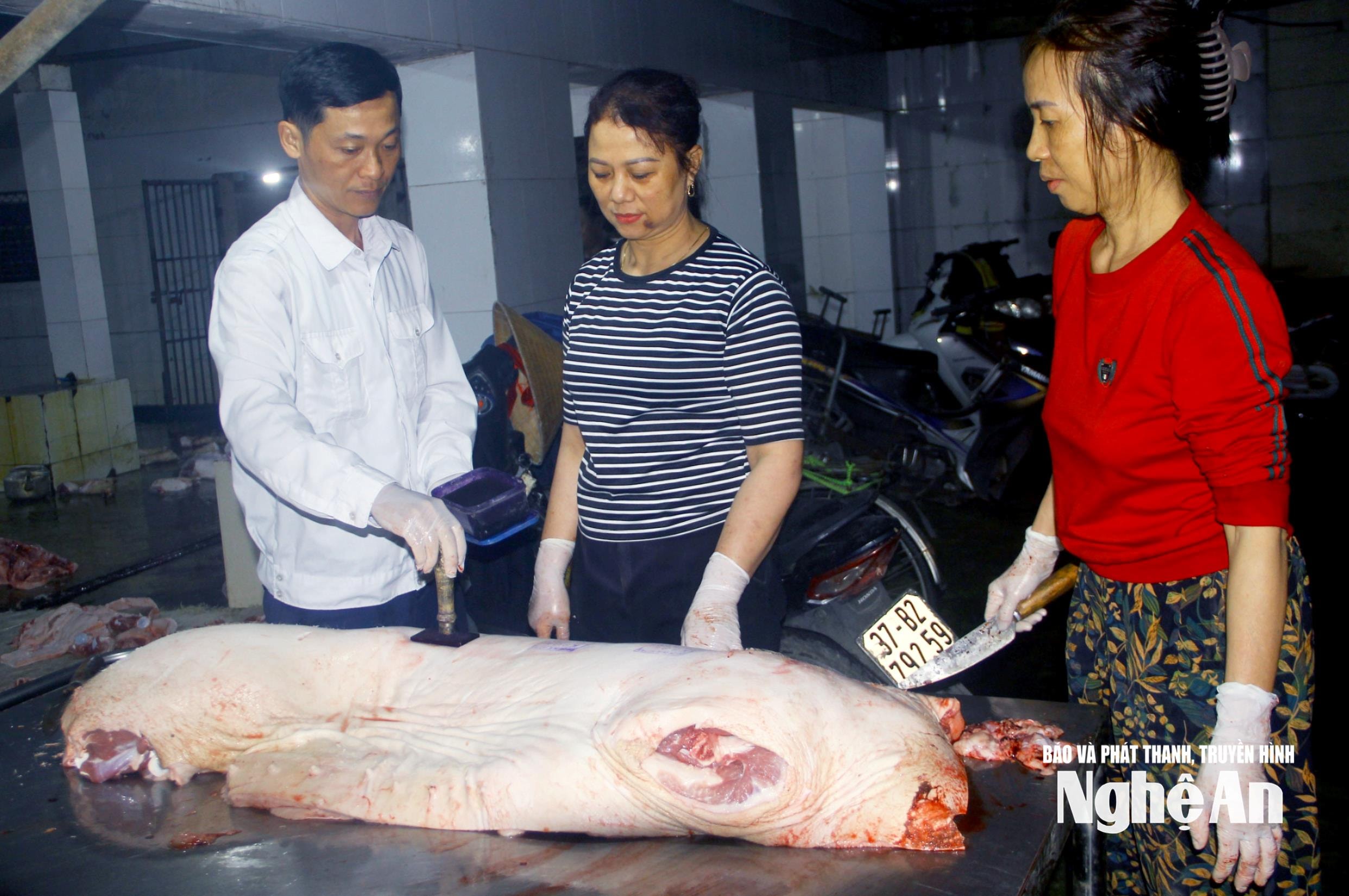
Ms. Bui Thi Thuyet, a resident of Truong Vinh ward, shared: “Pork is a daily meal for my family. But after following the news, seeing that the epidemic hasn't subsided, we are very worried. Currently, we only dare to buy pork sent by relatives in the countryside, knowing its origin, and don't dare to buy it from street vendors or markets. I hope the authorities will provide more guidance so that people know how to identify and choose safe food.”

Sharing his thoughts on this matter, Mr. Tran Vo Ba, Deputy Head of the Department of Animal Husbandry and Veterinary Medicine of Nghe An province, said: “Before being brought to the slaughterhouse, pigs must have a negative test certificate for diseases, along with clear purchase invoices for traceability. Veterinary officers directly conduct clinical examinations of each pig; if any abnormalities are detected, they are immediately removed and not allowed to be slaughtered. Only when all these steps meet the requirements are the pigs allowed to go to the slaughterhouse. Afterwards, the product will be stamped with a quarantine seal and issued a safety certificate before being released to the market. Consumers should pay attention to the quarantine seal on the pig's body when buying meat, as this is the most important legal and technical basis to confirm that the meat has undergone veterinary inspection.”
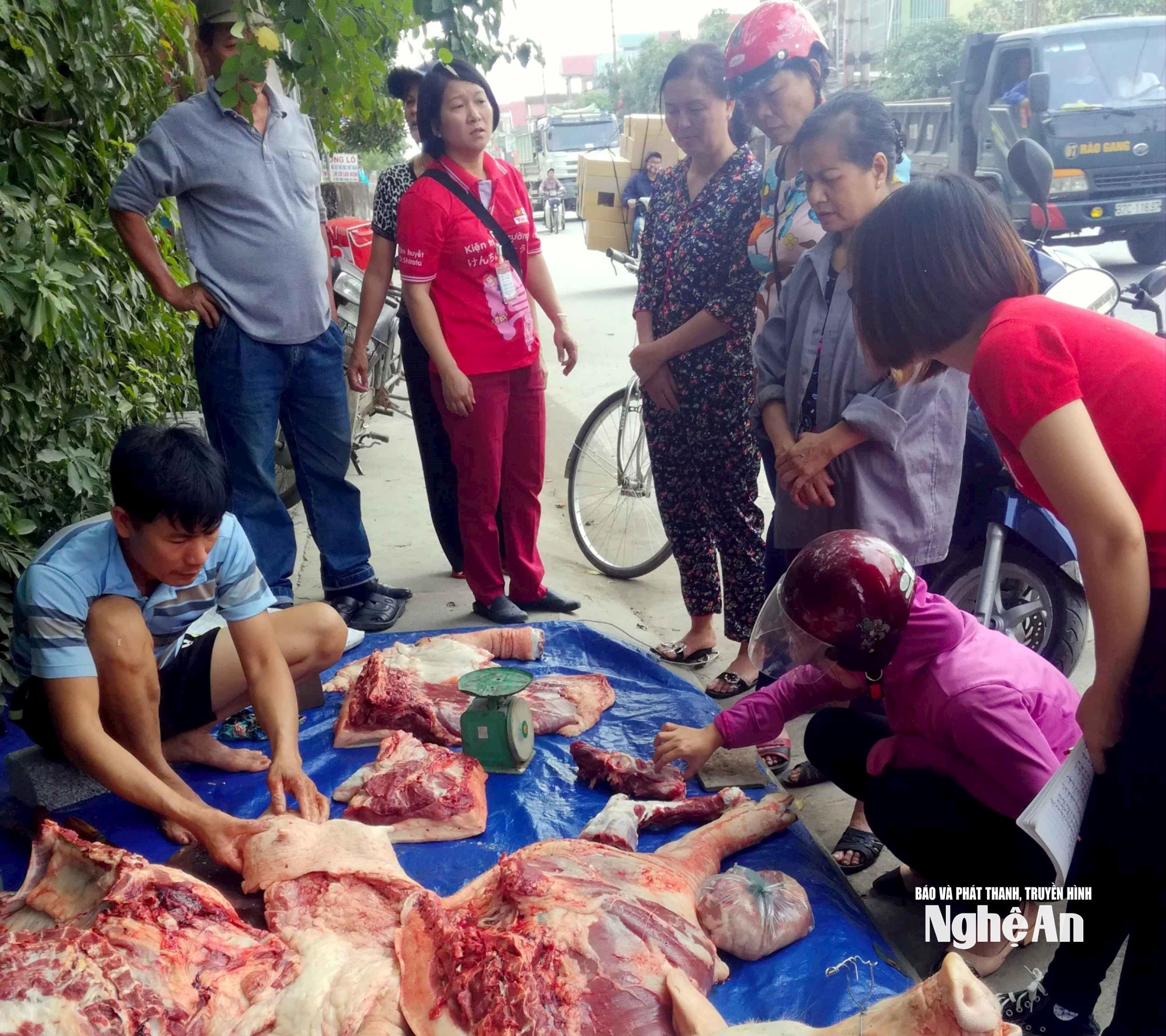
Authorities also advise people to only buy food from reputable stores, supermarkets, and shopping malls. At these locations, quality control processes are strictly implemented from the import stage, refrigeration, sorting, to display and sale. Imported meat must have complete quarantine certificates and be stored in a clean environment at the correct temperature. Consumers can also easily observe labels, traceability stamps, and expiration dates when purchasing to ensure peace of mind.
If you notice any abnormalities such as unusual color, strange smell, watery or slimy surface of the meat, consumers should absolutely not buy it. Furthermore, be wary of the temptation to buy cheap meat, as many cases of pork sold at prices lower than the market rate are due to unknown origins, and may even come from diseased pigs. This careless choice by some buyers inadvertently contributes to the spread of contaminated meat, further complicating disease prevention and control efforts.
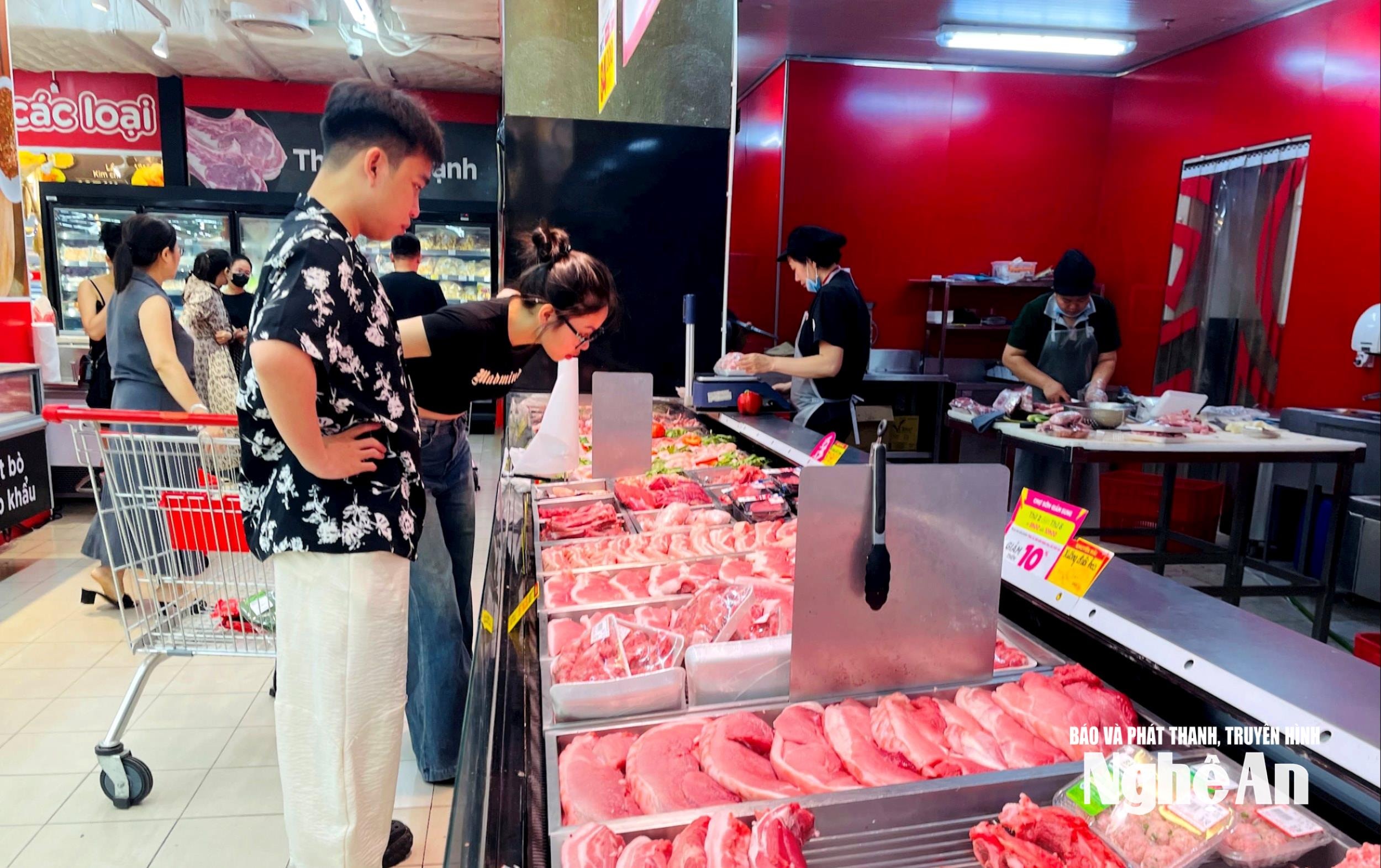
Mr. Nham Sy Thanh, Director of Lotte Mart Vinh supermarket, said: “We strictly control all items, especially pork and fresh food. On average, the supermarket consumes about 100 kg of pork per day, both fresh and processed products. All products must have negative test certificates and clear origins before being imported and displayed on the shelves. During the pandemic, consumption even doubled because people trusted the quality control process of our unit.”
Besides opinions from authorities and distributors, many small traders also expressed their desire for a clear management mechanism so that they can conduct their business with peace of mind.
Ms. Hoang Thi Lan, a pork vendor at Vinh Train Station Market, said: “Not only buyers but also we sellers are very worried. If we import substandard meat, we will lose customers and risk being fined. Therefore, I only dare to source goods from centralized slaughterhouses with complete quarantine certificates. Although the import price is a little higher, in return, customers trust us and come back to buy regularly. I think the authorities should increase the dissemination of information on how to identify quality pork so that consumers can feel secure, not turn away from pork, and stabilize the market.”
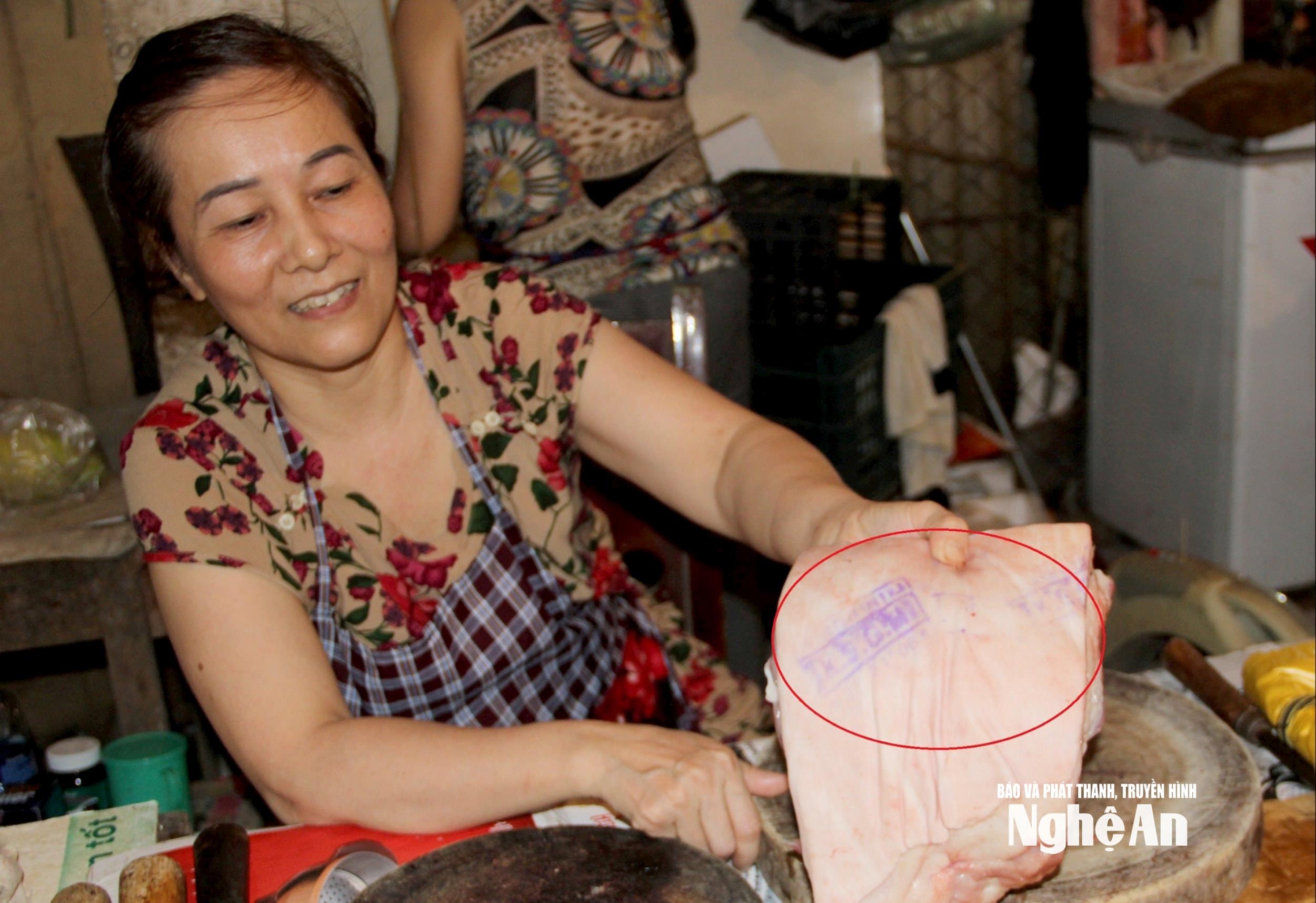
African swine fever is posing significant challenges for Nghe An province, from breeding and slaughtering to consumption. In the joint efforts of the government and relevant authorities, each citizen needs to play the role of the "final gatekeeper," making smart choices and consuming safely. When people are vigilant and discerning in their purchasing decisions, their own health and the health of the community will be protected, and they will make a crucial contribution to combating the disease, which has persisted since the beginning of the year.



